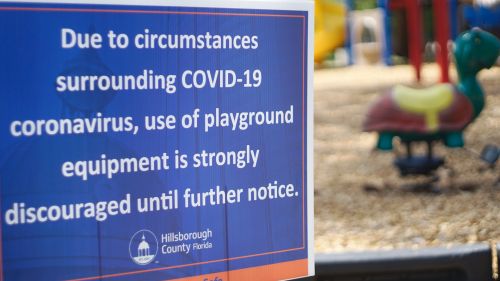Co-Operation: A Pre-Existing Condition

Council expert Ian Klaus examines how history will remember the almost simultaneous global mobilization of policy and resources, as well as local urban adaptations and interventions.
Books, blogs, and podcasts on the urban responses to COVID-19 will fill libraries and megabytes of cloud storage. We will have macro-histories of the almost simultaneous global mobilization of policy and resources. Within three days of each other in mid-March, for instance, the state of California, the self-governing region of Catalonia, Spain, and South Africa all entered quarantine. San Francisco is more than 10,000 miles from Cape Town, and Cape Town more than 11,000 miles by land from Barcelona. And yet, similar approaches were adopted across these great distances and by multiple levels of government. With political will, blunt policy can spread as fast as a baffling pandemic.
Alongside these macro, global histories, we will have microhistories of local urban adaptations and interventions. Consider the number of social distancing indicators you have encountered or the myriad ways your streets were remarked or reclaimed. Cars retreated; cars sped up. Skateboarders triumphed; skateboarders were thwarted. These practices often developed in ad hoc fashion and were shared informally across subcultures and social media, rather than between governments. In fact, such practices frequently involved the use of public space as governments retreated from or eased regulation and enforcement, or quickly got creative themselves.
One of the curiosities of COVID-19 is the degree to which the reach of government and policy appeared to stretch further into daily life than ever before, and yet city residents refashioned the city around them through minor interventions as if there was no government at all.
In April and May, the Barcelona Centre for International Affairs (CIDOB) released an illuminating series of case studies on urban responses to COVID-19. These are early days still, and yet the pieces allow for provisional knowledge sharing and debate. A number of notable points stand out across the studies. To be sure, the responses of national governments were essential. While this isn’t much under debate, it is fascinating all the same to see in detail the degree to which the COVID-19 experiences in Zurich (Sabina Ufer) and London (Philip Rode) were shaped by responsible, informed national decision making, or lack thereof.
Read as a collection, however, the CIDOB reports speak as much to the importance of civil society in resilience and preparedness as to that of national governments. In Barcelona, as Hannah Abdullah details, the City Council partnered with neighborhood maker organizations, Ateneus de Fabricació, to produce PPP. Neither the organizations nor the relationships were initiated in response to COVID-19; rather, the two groups “were able to partner up so rapidly and successfully because they could build on pre-existing cooperative relations.” In Cape Town, as Susan Parnell and Clara Mazetti Claassen report, multi-level-crisis governance by the Western Cape province and the city was supplemented by extensive activity from civil society organizations:
"A well-organized and experienced civil society in the city, which was forged in opposition to apartheid and in response to HIV/Aids, meant that gaps in government delivery were patched by religious communities, homeless shelters, feeding schemes, NGOs and community-based groups, such as those mobilized in response to COVID-19."
In his overview of the Milan experience, Andrea Tobia Zevi similarly notes that amid challenges of multi-level governance, long-standing institutions such as the Catholic Church and leading philanthropies filled crucial gaps particularly as it came to vulnerable groups. Samuel Kling’s essay on Chicago adds further local detail and sociological depth to any discussion of civil society and the importance of social capital.
The macro-history of COVID-19 is not going to be generous to national and international leaders and policymakers. Given the loss of life, particularly among vulnerable and various minority populations, we needn’t go naively searching for success stories. Coherent national and international responses were and are needed. Like most historical analogies, that of the evacuation of Dunkirk is overused and often wrongly deployed. But in reading the micro-histories of these local organizations around the world that, in the face of massive strategic blunders, showed flexibility, dedication, and resilience, one can envision a flotilla of small boats crossing treacherous waters.
In her essay on Hong Kong, Mee Kam Ng makes clear the hard-earned advantages governments and civil society organizations possess if they have previously experienced an epidemic-or-pandemic like health crisis. And the experiences of Hong Kong (and Singapore) illustrate the importance of learning from COVID-19 and thus to the value of collections, and other such efforts in different forms, such as that published by CIDOB; but in March 2020, most cities and most civil society organizations had not recently experienced a pandemic. The early histories of Barcelona, Cape Town, and Milan, to name but a few, thus speak to the importance of long-standing civil society organizations in addressing their traditional areas of focus—from social justice, to faith and community, to technological innovation - but also in providing resilience against surprises.
At the end of April, the economist Paul Collier offered in the Times Literary Supplement his own much-more sweeping early history of COVID-19. As it came to his own country, he pulled no punches: “There is no mystery as to why the UK is so far behind Germany. Whitehall and both political parties share a longstanding fixation with centralized control: it is an aspect of the same syndrome—the top knows best.” Better, he argued, is a decentralized system that “learns from a litany of failed experiments running in parallel, and so it learns fast: teams copy other teams that have hit on something that works well enough to get the job done.” This has long been the argument in favor of city diplomacy, and it’s proven true again during COVID-19. But not to be lost in the history of the policy exchange during the first four months of COVID-19, is how many of those decentralized systems relied upon long-existing, running-in-parallel, civil society organizations

